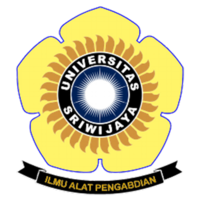Usahatani Padi Rawa Lebak Berbasis Pengelolaan Tanaman Terpadu di Sumatera Selatan
Abstract
Syahri et al, 2019. Rice Farming System Based on Integrated Crop Management in Swampy Area of South Sumatera. pp. 436-441.
Abiotic stress namely soil acidity and droughout are known as major problem in farming systems on swampy area. They need good agricultural practices in order to manage them, such Integrated Crop Management (IPM). One of them is rice varieties which adaptative for swampy area, such as Inpari 30, Inpari 33, Inpara 2 and Inpara 4. These varieties were cultivated on 3-ha farmer’s field in Rambutan sub-district, district of Banyuasin. Technology was used are legowo 4:1 system, 21 days seedling, 2-3 seedling per hole and integrated pest management. Plant growth and yield were observed in this research. The result showed that ICM could increase benefit for farmer (R/C > 1) through increasing of rice yield. Productivity of Inpara 2 and Inpara 4 about 4,4 t dried grains per ha.
Abiotic stress namely soil acidity and droughout are known as major problem in farming systems on swampy area. They need good agricultural practices in order to manage them, such Integrated Crop Management (IPM). One of them is rice varieties which adaptative for swampy area, such as Inpari 30, Inpari 33, Inpara 2 and Inpara 4. These varieties were cultivated on 3-ha farmer’s field in Rambutan sub-district, district of Banyuasin. Technology was used are legowo 4:1 system, 21 days seedling, 2-3 seedling per hole and integrated pest management. Plant growth and yield were observed in this research. The result showed that ICM could increase benefit for farmer (R/C > 1) through increasing of rice yield. Productivity of Inpara 2 and Inpara 4 about 4,4 t dried grains per ha.
Full Text:
PDFArticle Metrics
Abstract view : 432 timesPDF - 358 times
Refbacks
- There are currently no refbacks.

